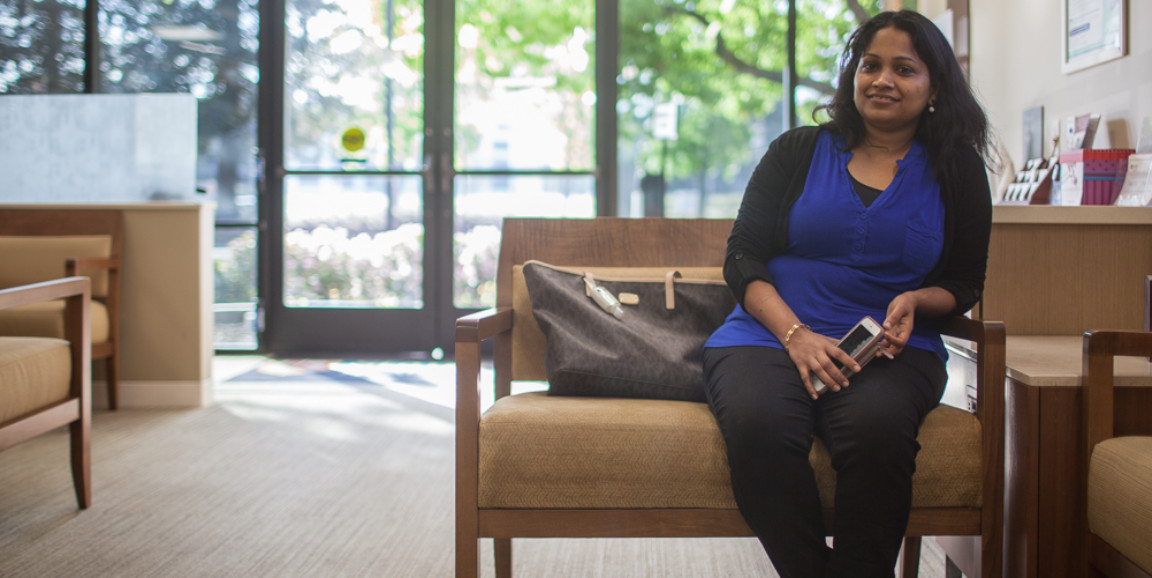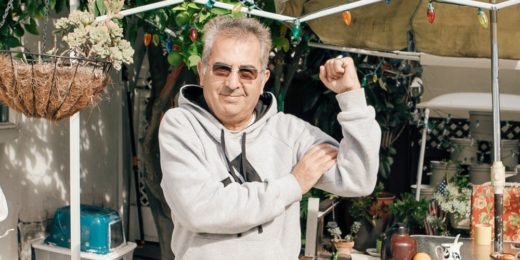Jayasree Pillai has thought a lot about cancer.
Her mother battled the disease off and on for 24 years before dying in fall 2017, and her daughter Gauri was diagnosed with leukemia when she was 10. Gauri is fine now, after treatment that included a bone marrow transplant, but Pillai has wondered if she passed along the disease through her genes. She also has wondered if she's predisposed to cancer.
In 2018, Pillai enrolled in Stanford Medicine's Humanwide project with the hope of answering these questions. In the yearlong pilot, a primary care team combined insights about individual patients from DNA testing, digital devices and other sources to understand their concerns and risks, and to map out a plan for reaching personal health goals.
The third video in the Humanwide series tells Pillai's story.
In the video, Megan Mahoney, MD, chief of general primary care at Stanford Medicine, described the growing importance of genetics, as tests become more affordable and accessible.
"It's really going to help us define the future of medicine," said Mahoney, who led Humanwide. "We will be able to identify cancers before they even affect a person, just like we do for pap smears, just like we do for prenatal testing for our babies."
Through Humanwide, Pillai underwent testing to find out whether her mother's cancer was connected to a genetic mutation that she shared.
As Stanford genetic counselor Kelly Ormond explained to Pillai in the video:
The way that these genes work is they are like the instruction book for how your body works. Almost like a cookbook. You could imagine you had a cookbook, and someone made a major typo on a recipe -- your recipe might not turn out how you want it to...
Genes work the same way. They tell our body how to make things and how to function. And so, if a gene isn't working properly, that can increase your chance, for example, of cancer. And so, what we are actually doing in this genetic test is reading out every letter, almost like a spellchecking program. If we see a difference from what we expect, then we look in a database and we see, is this a change that I know causes a risk for cancer?
Getting the genetic test was easy, but for Pillai, the waiting was tense.
Her mother was 38 when she was first diagnosed. Pillai was now 39.
Thinking of what her mother and daughter went through during their treatments brought tears to Pillai's eyes. "I could feel that pain when her hair was gone, and how difficult it was," she said of her mother. "The same thing for my daughter."
Luckily, when the call came, the news was good. Pillai does not have the well-known BRCA 1 or BRCA 2 gene mutations that boost the risk of breast and ovarian cancer, said Latha Palaniappan, MD, Stanford's scientific director of precision genomics and pharmacogenomics in primary care.
"We also checked for many other mutations," Palaniappan told Pillai, "and they were all negative."
Photo by Luceo






